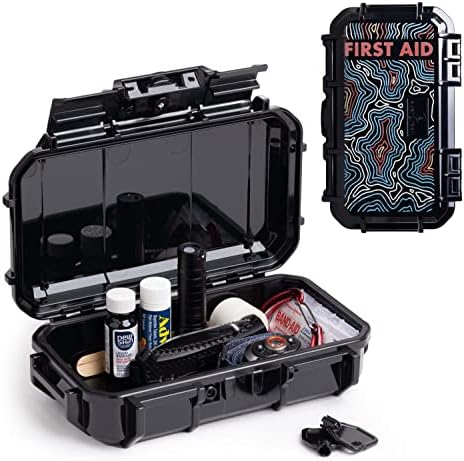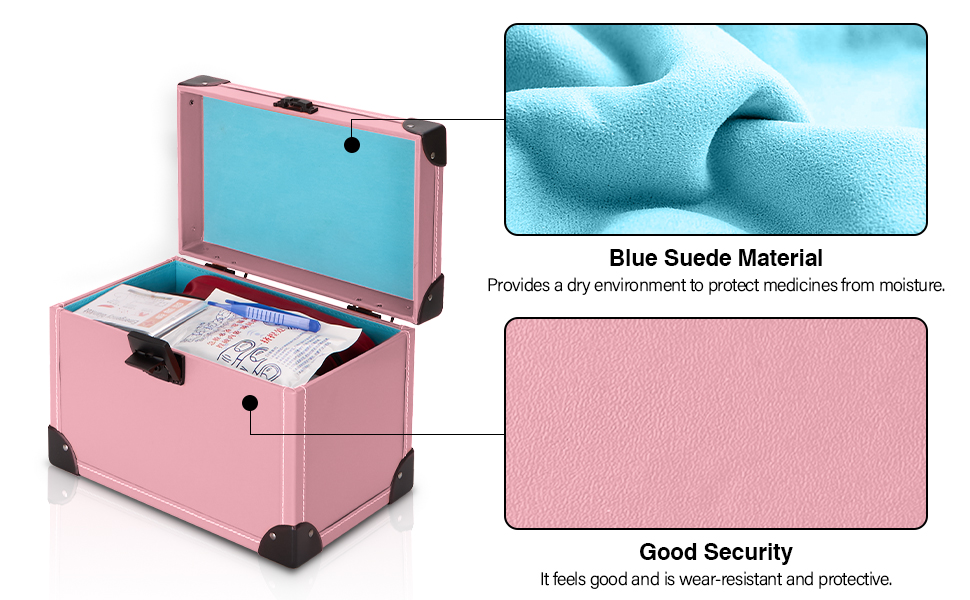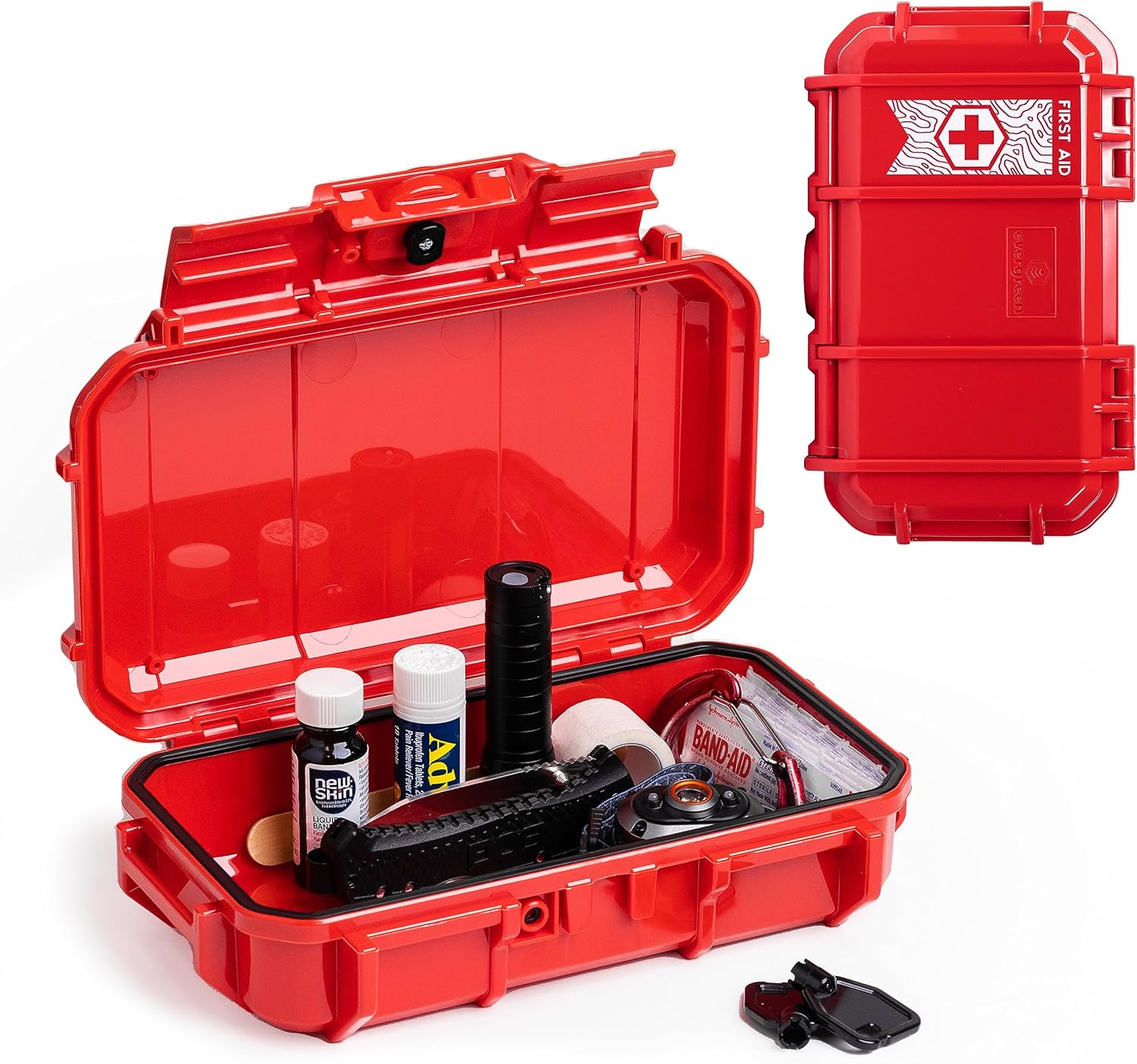In an era where medication management has become increasingly essential, especially for individuals with chronic conditions, the need for a secure and efficient method of storing medications cannot be overstated. A lock box for medications is not just a practical solution; it is a necessity for enhancing safety, preventing misuse, and ensuring medication adherence. This article delves into the critical aspects of choosing the right lock box for your medications, offering insights into various factors, examples, and statistics that will guide you in making an informed decision.
Understanding the Importance of a Medication Lock Box

Before we explore how to choose the right lock box, it is essential to understand why having one is crucial.
- Preventing Accidental Ingestion: Children and pets are naturally curious. A lock box helps prevent accidental ingestion of potentially harmful medications.
- Reducing Misuse: With the opioid crisis affecting many communities, securing medications can prevent misuse and abuse.
- Enhancing Medication Adherence: For those on multiple medications, a lock box can help keep everything organized and accessible, leading to better adherence.
- Protecting Privacy: A lock box also ensures that personal health information remains confidential and secure.
Factors to Consider When Choosing a Medication Lock Box
Choosing the right lock box involves careful consideration of several factors. Below are the key elements to keep in mind:
1. Size and Capacity
When selecting a lock box, size is one of the most crucial factors. You’ll want to ensure it has enough capacity to accommodate all your medications. Consider the following:
- Assess the number of medications you need to store.
- Consider the size of the medication containers (e.g., pill bottles, blister packs).
- Think about future needs if your medication regimen changes.
2. Security Features

Not all lock boxes are created equal when it comes to security. Here are some features to look for:
- Locking Mechanism: Consider whether you prefer a combination lock, key lock, or digital lock.
- Durability: Look for materials that resist tampering or breaking, such as steel or high-grade plastic.
- Portability: If you travel frequently, a lightweight and portable lock box may be necessary.
3. Ease of Use

The lock box should be convenient for daily use. Consider these aspects:
- How easy is it to open and close the lock box?
- Is the interior organized to facilitate quick access to medications?
- Can it be opened by multiple authorized users, if necessary?
4. Compliance with Regulations
For certain conditions and medications, there may be specific regulations regarding storage. It is essential to ensure that the lock box complies with any legal requirements, especially if you are storing controlled substances.
5. Cost Considerations
Lock boxes come in a range of prices. It is essential to find one that fits your budget while still meeting your security needs. Compare features across different price points to ensure you are getting the best value for your money.
Types of Medication Lock Boxes

There are various types of lock boxes available on the market. Understanding the differences can help you choose the one that best fits your needs.
1. Traditional Lock Boxes

These are standard boxes with a manual locking mechanism. They are often affordable and come in various sizes. However, they may not offer advanced security features.
2. Smart Lock Boxes
Smart lock boxes feature digital locks that can be accessed via a smartphone app or a keypad. These offer advanced security features and monitoring capabilities, making them suitable for tech-savvy individuals or families.
3. Portable Lock Boxes
If you travel frequently or need to store medications in different locations, a portable lock box is an ideal choice. These are typically lightweight and compact but still provide adequate security.
4. Medication Organizers with Locking Features
Some lock boxes combine medication organization with security. These often include compartments for daily doses and a locking mechanism, making medication management easier.
Real-Life Examples and Case Studies
To illustrate the importance of a medication lock box, consider the following case studies:
Case Study 1: A Family with Young Children
The Johnson family, with two young children, struggled with keeping their medications secure. After a near-miss incident where their child accessed a prescription bottle, they decided to invest in a lock box. They chose a portable smart lock box that allows access via their smartphones. This not only ensured their children’s safety but also provided peace of mind.
Case Study 2: An Elderly Patient with Multiple Medications
Mrs. Thompson, an 82-year-old woman with multiple prescriptions, often forgot to take her medications. After consulting with her physician, her family purchased a medication organizer with a locking feature. This helped Mrs. Thompson adhere to her medication schedule while also keeping her medications secure from potential misuse.
Statistics on Medication Safety

Understanding the statistics surrounding medication safety can further emphasize the need for a lock box. According to the National Institute on Drug Abuse, approximately 21-29% of patients prescribed opioids for chronic pain misuse them. Furthermore, the Centers for Disease Control and Prevention indicates that accidental overdoses from opioids have become a leading cause of death in the U.S.
Securing medications in a lock box can significantly reduce the risk of misuse and accidental ingestion, making it a critical component of responsible medication management.
Choosing the right lock box for your medications is a vital step in ensuring safety, preventing misuse, and promoting adherence to prescribed regimens. By considering factors such as size, security features, ease of use, regulatory compliance, and cost, you can select a lock box that best fits your needs. With various types available, from traditional lock boxes to smart solutions, it is essential to choose one that aligns with your lifestyle. Real-life examples and statistics underscore the importance of taking this precaution seriously. Secure your medications today and take control of your health journey.